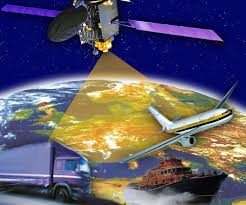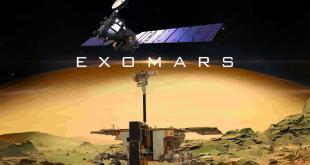
The European Space Agency (ESA) has awarded two contracts to Thales Alenia Space, the joint company between Thales (67%) and Leonardo (33%), concerning EGNOS (European Geostationary Navigation Overlay Service). These contracts, fully financed under the European Commission H2020 programme concern study phases on the system evolution. They will call on Thales Alenia Space’s expertise as program prime contractor for over 25 years to study and develop upgrades for the EGNOS satellite navigation system.
The first contract concerns possible upgrades for EGNOS aeronautical services, designed to improve performances in order to increase landing safety under limited visibility conditions (from current CAT-I to CAT-II), over the current EGNOS footprint, focused on Europe.
The second contract will study changes required to extend its aeronautical services worldwide. Based on state-of-the-art technologies, this upgrade will call on the A-RAIM (Advanced Receiver Autonomous Integrity Monitoring) concept and the global coverage of the Galileo satnav constellation. RAIM is an already deployed technology that assesses the integrity of signals in the receivers that are part of a global positioning system, mainly GPS. Galileo will now be incorporated in the advanced version of this concept, A-RAIM, to provide enhanced horizontal guidance performance, not possible with RAIM using only GPS. The new concept would thus provide “safety of life” aeronautical services, including approaches with vertical guidance, thanks to inputs from GPS and Galileo via EGNOS.
“Today’s contracts are key for satellite navigation in Europe and bolster Thales Alenia Space’s European leadership in state of art satellite navigation systems, including Safety of Life services”, said Benoit Broudy, head of the Navigation business at Thales Alenia Space in France. He added: “Our successes on export markets, as in South Korea, validate our innovative approach that allows us to offer increasingly powerful and agile solutions to meet the evolving requirements of customers from around the world.”
About EGNOS
EGNOS, a European Union flagship program, is a satellite navigation system designed to improve positioning signals delivered by GPS. Developed by Thales Alenia Space as prime contractor, EGNOS was first deployed in 2005, began operating in open service mode in 2009 and provided Safety of Life service starting in 2011.
The GNSS R&D activities are financed by the European Commission H2020 programme. They are managed by the European Space Agency through a delegation agreement from the European Commission.
Safety of Life service, a success in export markets
The EGNOS Safety of Life service is used to carry out precision airport approaches, especially landings, without requiring ground guidance systems. Building on its expertise in this field, Thales Alenia Space won a contract in 2016 from the Korean space agency to supply the Korean Augmentation Satellite System (KASS). With its Safety of Life capability, KASS is a regional Korean navigation system that will initially be used for aviation. It will provide critical services at several points of each flight, especially landing, so that, airports no longer need ground landing aid facilities. Along the same lines, in early 2019 ASECNA, the air navigation safety agency for Africa and Madagascar, chose Thales Alenia Space to handle a Phase B project that will include the supply of a pre-operational service in 2020 for a Satellite Based Augmentation System (SBAS) in sub-Saharan Africa, to provide an optimized satellite-based solution to support the growing air traffic in this region. The project recently took a major step forward, with validation of the system’s architecture and main performance characteristics. This study is being carried out jointly by ASECNA and Thales Alenia Space, with funding from the European Union, as part of an ambitious program to develop the aviation sector in Africa. Set for completion by the end of the year, it also includes the supply of a pre-operational service, along with demonstrations of how to use the service in conjunction with partner airlines. Thales Alenia Space has now completed acceptance testing of the demonstrator, which will subsequently be deployed at various sites.
This announcement was made on 18 May 2020.





